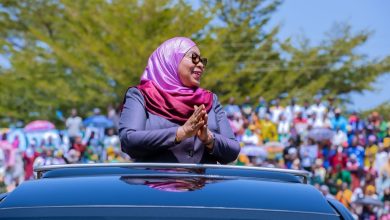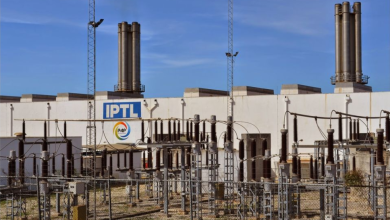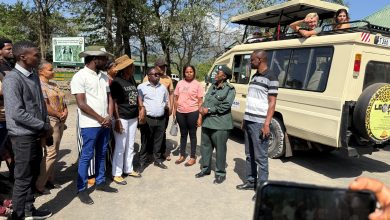Local engineers strike gold in Tanzania’s mega construction projects

DAR ES SALAAM: THE rapid rise in ongoing constructions of projects across the country has opened new doors for local engineers, drawing thousands into national development works that were once dominated by foreign experts.
A trend not only strengthens professional expertise at home but also provides the momentum needed to realise the country’s Vision 2050 in the construction sector.
Engineers Registration Board (ERB), board chairman Eng David Manga said yesterday at the 22nd annual Engineers’ Day, themed achieved vision 2050 and advancing the role of engineers.

“Local engineers have taken centre stage in projects such as the Standard Gauge Railway (SGR) and the Julius Nyerere Hydropower Project; this transformation marks a turning point for the profession,” he said.
He said, “Since we introduced the formal registration system for engineers, we now have more than 46,000 registered professionals. A large share of them are directly involved in the country’s major development projects.This growth is a clear reflection of the ongoing infrastructure boom, unlike in the past when most expertise came from abroad.”
Eng Manga, however, cautioned that the numbers are still low compared to the country’s long term ambitions. “Vision 2050 outlines massive infrastructure projects yet to be built. While the SGR and hydropower projects have boosted participation, our target was by 2025 to register 130,000 engineers. Having just over 40,000 shows, we still have a long way to go.”
Officiating the event, Deputy Prime Minister Dotto Biteko, described engineering as “the heartbeat of the world and the country in general,” noting that no nation can progress without engineers driving its systems and policies.

“Globally, research shows that more than 70 percent of technological innovation is linked to engineering from ICT, energy, industry, and artificial intelligence. Over 90 percent of industrial breakthroughs depend directly on engineers. Without them, there is no design, no research, no innovation, no quality assurance, and no safety,” he said.
ALSO READ: Dr Biteko urges ERB to reward top-performing engineers
He added that every dollar invested in engineering yields between seven and ten dollars in economic returns, underscoring the need for continued investment in the profession. “If we want to grow as a nation, we cannot afford to stop investing in engineers,” he stressed.
Mr Biteko further urged the ERB board to give young professionals more opportunities to work on flagship projects and to expand registration efforts.
“When engineers are valued and trusted with big projects, they are motivated to stay in the profession. Without that recognition, many are tempted to shift careers in search of better pay,” he said.
The Acting Registrar of ERB, Ms Mercy Jilala, acknowledged progress but pointed out that women remain underrepresented in the field. Of the 46,000 registered engineers, only 6,025 about 13.8 percent are women.
“This is an improvement compared to 2010, when just 1,200 women were registered. The increase reflects deliberate efforts through programmes such as SEAP, which works with various stakeholders to support women engineers,” she said.
For his part, Works Minister Abdalla Ulega reaffirmed the government’s commitment to ensuring engineers remain at the forefront of strategic projects.
“Many young professionals are now actively contributing to national construction works, and we will continue to prioritise them according to their fields of expertise,” he said.
As Tanzania pushes forward with its infrastructure drive, engineers are not only building bridges, roads, and power plants, but they are laying the foundations for the nation’s future.





